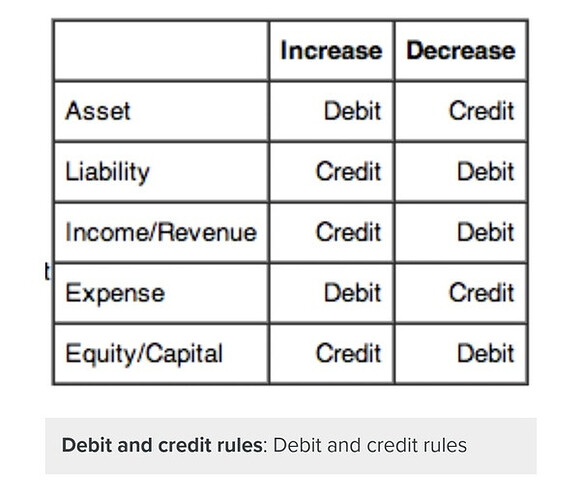Since schools (at least not in my school) don’t teach this in their curriculum, I thought it would be nice to make a thread on this.
What is Debit?
Debit and credit are two separate cards. A debit card is your own money, meaning the money inside the card is your earned money. You can deposit and withdraw money within your bank account. With this card, you can also open a savings account. With this card, you need a personal pin.
Debit cards do not have interest rates because you’re using your own money.
What is Credit?
This is more complicated.
Credit cards are completely different. A credit card is money from the bank, meaning if you choose to make purchases off of that card, you’d be borrowing their money and eventually would need to make a payment back to them with your own money. You cannot deposit or withdraw money with this card, but you don’t need a pin to use it!
With credit cards, it can be a bit more risky depending on your ability to manage money. With credit cards comes interest fees. When you make a payment, the bank will issue a note via electronically or mail as to when the statement is due. Credit cards have interest rates. The higher the interest rate, the more you have to pay. If you delay your payment, the interest fee may go up. You would not need to pay for any interest fee if you make a payment on time. ALWAYS pay them back in time or else you’ll end up paying more than the initial amount. For example:
- Say you go to buy a new couch and it costs $500, but your paycheck comes next week. You decide to pay by credit, so once you get your paycheck that is when you will pay the bank back. If you do not pay the full amount by the due date, the bank will give you an alternative: pay the minimum amount, but you will need to pay extra with this minimum amount because of the interest fee. Each time you miss the due date, the interest fee will go up. Say you missed the due date 3 times, the 3rd time you pay off everything in total of $550 (I am too lazy to do the actual math of interest rate so i chose a random number lol). Hypothetically, you wasted 50 dollars that you could’ve used on gas if you paid on time – but you didn’t so no gas for your car.
The more you miss the due dates when using credit cards, the worse your credit score will be. You want your credit score to be good. With a good credit score, you will be able to make loans, buy a house, car, etc. that the bank will let you use the money for. However, with a low credit score, the bank will not issue you loans or borrows for these things because there isn’t trust. That’s why you always need to make your payments on time when it comes to
credit.
But the thing is, the bank watches you. If you choose to spend $500 dollars using credit, it’s more risky with a bad credit score, so the bank will be more reluctant to let you use the money. With a good credit score, there’s more trust so the bank will be open to letting you use their money.
Think of credit score as trust. Good credit score means good trust, bad credit score means bad trust. It can take a really long time to build your credit score depending on how bad it is. So please, make sure to manage your money well with credit. Low credit scores can be a result of debt which isn’t something you want.
Credit and Cashback Rewards
Some credit card companies actually provide cashback rewards based on a percentage. Cashback is when you earn back a % of money spent on that credit card which you cannot do on a debit card.
Say you spend money on gas or groceries using credit, paying them back on time can give you a cashback reward of 2% which you can use to help save for plane tickets to go on vacation. Not all card companies do this but some do like Discover. However, cashback can expire.
Discover It Student card is a great example of cashback rewards. With this card, you can earn 5% back on everyday purchases which you can use to spend on your college tuition.
(I’d go into more detail if I knew more but I’m not that experienced).
If anyone has anything to add on, please do!
I hope this was helpful!
